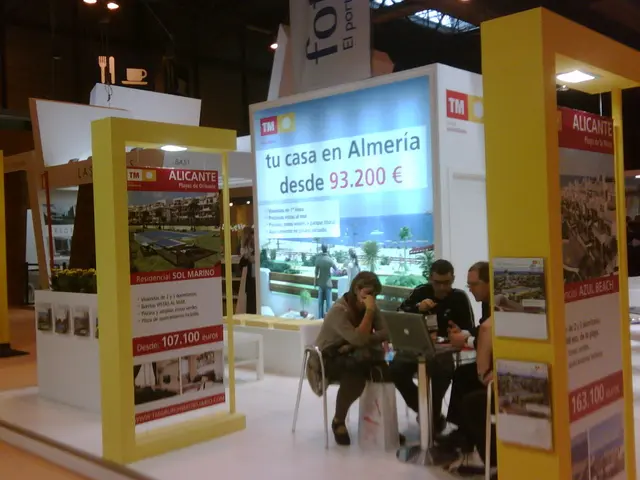Danish retirement fund invests in Latvian solar energy park facility
In a significant shift for renewable energy production in Latvia, the expansion of solar parks, including the solar park in Ventspils, is gaining momentum as part of a broader national effort.
Historically, Latvia has lagged behind its Baltic neighbours, Estonia and Lithuania, in solar capacity growth. This slower progress can be attributed to a later start and smaller scale of investments in renewable infrastructure, as well as historical investment patterns and a later regulatory and financial push towards renewables. However, recent developments show a significant acceleration.
A major turning point came in 2025 when Estonia-based renewable energy company Sunly secured €85 million in loans from a consortium including the European Investment Bank (EIB), the European Bank for Reconstruction and Development (EBRD), and SEB bank. These funds will finance four solar parks across Latvia, situated near Matīši (Valmiera), Dagda (Krāslava), Barkava (Madona), and Zirņi (Saldus).
These hybrid solar parks, integrating solar photovoltaic systems with wind power and battery energy storage, aim to enhance grid stability, electricity supply reliability, and regional energy security. With a combined capacity of 329 MW, they will supply electricity for up to 180,000 households and increase Latvia’s solar capacity by about 50%. This investment marks the EBRD’s first direct renewable project financing in Latvia, reflecting a new phase of accelerated solar expansion and a broader commitment to the green energy transition in the country.
Meanwhile, the solar park in Ventspils, with a capacity of 148 MW, is anticipated to produce electricity equivalent to the consumption of over 40,000 European households. Torbjørn Lange, Head of Properties and Direct Infrastructure at Sampension, considers the Ventspils solar park an attractive investment case. European Energy, in collaboration with Sampension, is spearheading the development of this project. Thorvald Spanggaard, EVP and Project Development Manager at European Energy, is pleased to collaborate on Latvia's largest solar park with Sampension.
The completion of these projects by early 2027 will substantially boost Latvia’s renewable capacity and energy independence within the Baltic region. Latvia aims to have 57% of its electricity consumption come from renewable energy by 2030, according to the IEA. This ambitious target is well within reach, given the current surge in renewable energy investments and collaborations.
In conclusion, the historically slower progress in Latvia’s solar expansion is now being addressed through significant international financial backing and strategic collaborations. The deployment of advanced hybrid solar parks, such as the one in Ventspils, marks a significant step forward in Latvia’s green energy transition. As these projects come to fruition, Latvia is poised to join its Baltic neighbours in leading the way in renewable energy production.
[1] https://www.sunly.ee/news/sunly-secures-85-million-euros-for-four-solar-parks-in-latvia [2] https://www.eib.org/en/press/news/2025/05/eib-to-finance-four-solar-parks-in-latvia-with-85-million-euros.htm [3] https://www.ebrd.com/news/ebrd-finances-first-direct-renewable-project-in-latvia-with-85-million-euros-for-four-solar-parks.html [4] https://www.sebgroup.com/en/news/seb-renews-its-commitment-to-climate-action-with-the-financing-of-four-solar-parks-in-latvia/ [5] https://www.investmentandpensions.eu/news/sampension-invests-in-four-solar-parks-in-latvia/
- The European Investment Bank, European Bank for Reconstruction and Development, SEB bank, and an Estonia-based renewable energy company, Sunly, invested €85 million to finance four solar parks in Latvia, a move reflecting a new phase of accelerated solar expansion and a broader commitment to the green energy transition in the country.
- As part of a broader national effort, the expansion of solar parks, including the solar park in Ventspils, is gaining momentum in Latvia, with the aim to increase energy independence within the Baltic region.
- The deployment of advanced hybrid solar parks, such as the one in Ventspils, which integrates solar photovoltaic systems with wind power and battery energy storage, demonstrates an insective approach to grid stability, electricity supply reliability, and regional energy security.
- With the completion of these projects by early 2027, Latvia will see a substantial boost in its renewable capacity and join its Baltic neighbours, Estonia and Lithuania, in leading the way in renewable energy production, achieving a significant portion of its 2030 renewable energy target set by the International Energy Agency.



